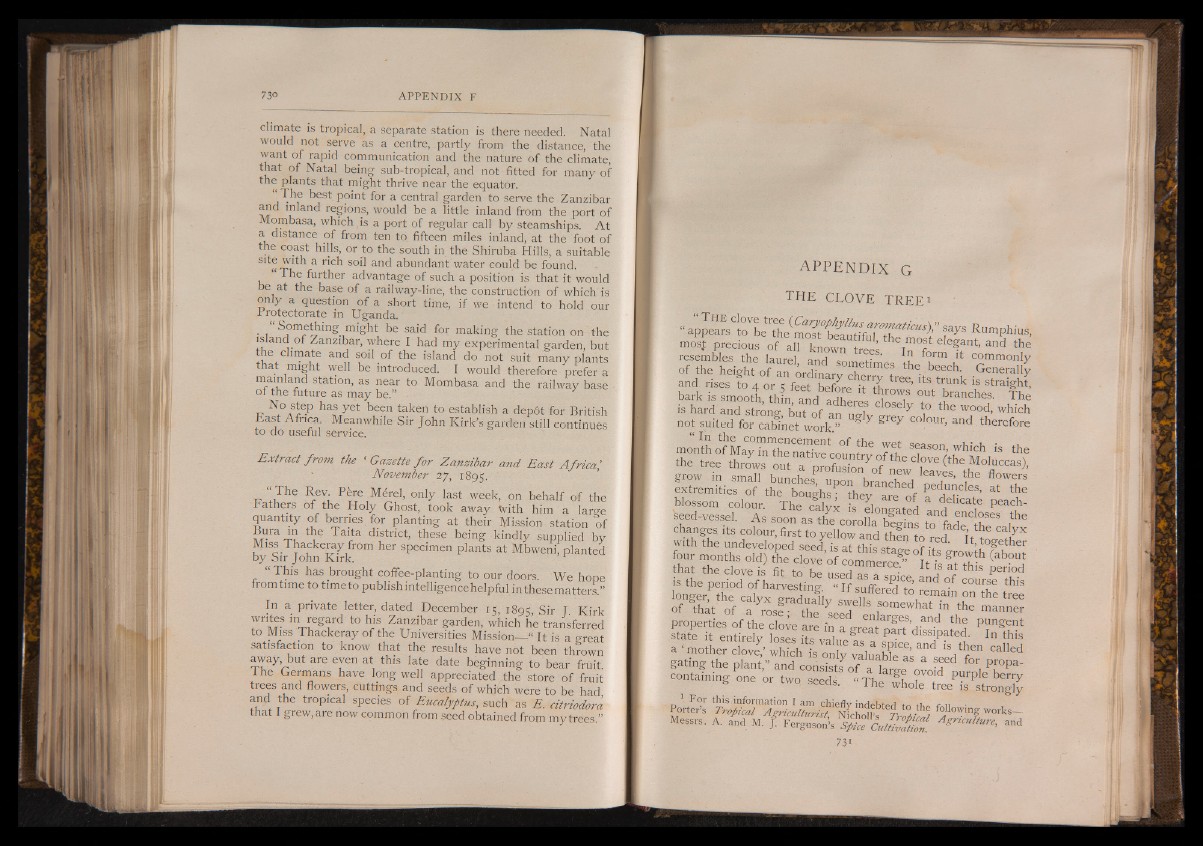
climate is tropical, a separate station is there needed. Natal
would not serve as a centre, partly from the distance, the
want of rapid communication and the nature of the climate,
that of Natal being sub-tropical, and not fitted for many of
the plants that might thrive near the equator.
"T*16 best point for a central garden to serve the Zanzibar
and inland regions, would be a little inland from the port of
Mombasa, which is a port of regular call by steamships. A t
a distance of from ten to fifteen miles inland, at the foot of
the coast hills, or to the south in the Shiriiba Hills, a suitable
a sod and abundant water could be found,
k® further advantage of such a position is that it would
be at the base of a railway-line, the construction of which is
on y a question of a short time, if we intend to hold our
.Protectorate in Uganda.
■ Something might be said for making the station on the
island °f Zanzibar, where I had my experimental garden, but
the climate and soil of the island do not suit many plants
that might well be introduced. I would therefore prefer a
mainland station, as near to Mombasa and the railway base
of the future as may be.”
No step has yet been taken to establish a dépôt for British
East Africa Meanwhile Sir John Kirk’s garden still continues
to do useful service.
Extract from the ‘ Gazette fo r Zanzibar and East Africul
November 27, 1895.
„ “ J he Rrev; P®re Mérel, only last week, on behalf of the
bathers of the Holy Ghost, took away with him a laroe
quantity of berries for planting at their Mission station of
« I l 'lu ¡¡¡I rta dl,strlct> these being kindly supplied by
Miss Thackeray from her specimen plants at Mbweni, planted
by Sir John Kirk. r
“ This has brought coffee-planting to our door’s. We hope
from time to timeto publish intelligencehelpful in these matters.”
In a private letter, dated December 15, 1895 Sir T Kirk
to hi s, Zanzibar garden, which he transferred
to Miss Thackeray of the Universities Mission— « It is a great
satisfaction to know that the results have not been thrown
away, but are even at this late date beginning to bear fruit.
1 he Germans have long well appreciated the store of fruit
trees and flowers, cuttings and seeds of which were to be had
and the tropical species of Eucalyptus, such as E. citriodor 'a
that 1 grew, are now common from seed obtained from my trees.”
A P P ENDIX g
THE CLOVE T R E E 1
“ appears to be RuniPhius,
mosf precious of all the
resembles the laurel anH cn <-■ 1 m h commonly
and rises to 4 or 5 feet before it- \s straight,
bark is smooth, thL, and aZeres f e S Z £ I
is hard and strono- huf of ^ 1 wood, which
not suited for cabinet work ” Ug 7 colour> and therefore
seed-vessel. As soon S B W H
changes its colour, first to yellow and thfn to red Tt r 1 § S
with the undeveloped seed is at rhi« c ’ together
four months old) W B M M f c n f e t MB» B m m m
H M B l j* 4 s o m e X tT th e ”
B M B M s B M t a g g
a ‘mother clove,’ which is only v a l u a b K s V f “ Called
gating the plant,” and consists of a L I ? , Pf ° pa_
containing one or two seeds. “ The
Porter’s
Messrs. A. and M. J. Ferguson’s Spice C uiZ aSon. and
731